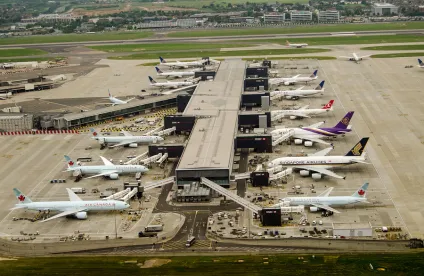Earlier this month, the U.S. Supreme Court in Southwest Airlines Co. v. Saxon unanimously held that a ramp supervisor who frequently handled cargo for an interstate airline company was exempt from coverage under the Federal Arbitration Act (FAA) because she belonged to a “class of workers engaged in foreign or interstate commerce.” 9 U.S.C. § 1.
In reaching this conclusion, the Court’s analysis was twofold. First, it defined the “class of workers” by looking at “the actual work that the members of the class, as a whole, typically carr[ied] out.” In this regard, the Court defined the class of workers as those individuals who physically loaded and unloaded cargo on and off airplanes on a frequent basis.
Next, the Court examined whether this class of workers was “engaged in foreign or interstate commerce.” The Court held that it was, as airline employees who physically loaded and unloaded cargo on and off planes traveling in interstate commerce were “intimately involved” with cross-border commerce.
Although both sides argued for a broader or narrower application of the exemption, the Court remained unpersuaded. The ramp supervisor argued that the “class of workers” should be broadly defined to include all employees who carried out the “customary work” of the airline, rather than cargo loaders more specifically. The Court rejected this industrywide or companywide approach, which would exempt “virtually all employees of major transportation providers” – from cargo loaders to shift schedulers to those who design the airline’s website.
The Court also rejected the airline’s argument that only workers who physically moved goods or people across foreign or international boundaries – such as pilots, ship crews, and locomotive engineers – were “engaged in foreign or interstate commerce.” Unlike in other cases where the Court found a lack of necessary nexus to interstate commerce – such as in the intrastate sale of asphalt to be used on highways, or providing localized janitorial services to a corporation engaged in interstate commerce – here the case law was clear that airplane cargo loaders plainly performed activities within the flow of interstate commerce. The Supreme Court’s decision clarified the analysis of whether a worker qualifies for the FAA’s transportation worker exemption. However, the scope of this exemption will continue to be hotly litigated in cases involving other types of workers such as, for example, “last leg” delivery drivers and food delivery drivers, where, as the Court noted, “the answer will not always be so plain.”





 />i
/>i
